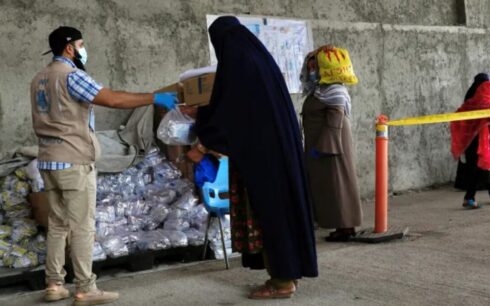A diplomatic dispute over control of United Nations Security Council resolutions on Afghanistan has escalated into a broader clash between the United States and China, raising tensions within the global body, Just Security reported.
The disagreement, which has been simmering since late 2024, has intensified in recent weeks following the return of the Trump administration. The dispute could shape not only the U.N.’s engagement with the Taliban-led government in Kabul but also Beijing’s growing influence in the Security Council.
“While the Trump administration has made headlines by pulling out of U.N. mechanisms like the Paris climate pact and the World Health Organization, this argument in the council could be a harbinger of more Sino-American tensions over multilateral security,” the report stated.
At the center of the dispute is which country should serve as the Security Council’s “penholder” on Afghanistan. In U.N. terminology, the penholder is responsible for drafting resolutions, initiating negotiations, and shaping key mandates related to the country in question.
Some council members have suggested a shared arrangement, with South Korea acting as a pro-Western counterbalance to China’s influence. However, Pakistan has asserted its right to take the lead, citing its geographic proximity and security concerns related to Afghanistan.
Security Council resolutions are binding documents aimed at maintaining international peace and security. They can include sanctions, the deployment of peacekeeping forces, and diplomatic measures, all of which member states are obligated to enforce.
Resolutions on Afghanistan typically address counterterrorism efforts, support for the peace process, oversight of U.N. missions—such as the United Nations Assistance Mission in Afghanistan (UNAMA)—human rights, and sanctions enforcement.
The Just Security report noted that U.S. officials are increasingly concerned about China’s influence at the U.N. and are reluctant to allow Beijing to shape Afghanistan’s agenda. The tensions over Afghanistan’s Security Council resolutions have further intensified with Donald Trump’s return to office.
Trump has repeatedly emphasized the strategic importance of Bagram Air Base in Afghanistan. Two weeks ago, he stated that if he had been in office at the time of the U.S. withdrawal, he would have retained control of the base. He also claimed—without evidence—that China currently controls the facility.
Historically, the three Western permanent members of the Security Council—the United States, France, and the United Kingdom—have held significant influence over resolution drafting. According to Just Security, in 2024, the U.S. served as penholder on six country-specific issues, France on seven, and the U.K. on six. Russia has led on matters concerning Central Asia and co-leads with the U.S. on the U.N. peacekeeping mission in the Golan Heights.
With Beijing’s influence at the U.N. growing, the battle over Afghanistan’s Security Council resolutions is likely to remain a key flashpoint in U.S.-China relations.





